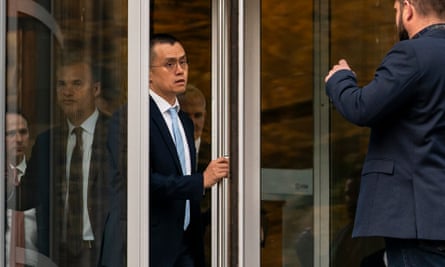Alex Hern
Merry Christmas! We have made it – almost – through another year without being churned into paste by a super-intelligent AI, conscripted into a Martian work camp by an insane billionaire or forced offline by a Carrington event.
Even in the absence of civilisation-altering events it’s been a busy year. But the advantage of a slow week (I hope that isn’t tempting fate) is that you can reflect on the past 12 months and realise that, sometimes, there’s only a few stories that really matter.
My initial draft of this newsletter said “obviously this was the most important story in my life this winter”, but thankfully I remembered my son was born in January before sending it off to my editor. Still, if you don’t work at the Guardian, it may seem self-indulgent to describe the ransomware attack as one of the biggest stories of the year.
But it started the year off as it would continue: with proof that cybercrime isn’t going anywhere and it is increasingly able to damage institutions to much the same degree as more direct acts of vandalism.
Almost exactly a year on, and nothing’s changed. From a parliamentary report published earlier this month:

Hinton: ‘Overreacting is a lot better than under-reacting.’
“Existential risk” has been part of the discussion around artificial intelligence for more than a decade, popularised in 2014 by Oxford philosopher Nick Bostrom’s book Superintelligence, but mainstream treatments of the idea – that an overly competent AI could be the end of civilisation – have tended toward dismissive. Think Terminator references.
That changed over the spring of 2023, led in part by the decision of Geoffrey Hinton (pictured above), one of the three “godfathers of AI”, to quit his job at Google and spend his retirement warning of the risks:
Hinton’s peers, including his fellow “godfather” Yann LeCun, don’t all agree. “I think that scenario is preposterous,” LeCun told the Financial Times in November:
Regardless of who you agree with, there’s no questioning that “AI risk” is taken seriously in a way it wasn’t just a year ago. Witness, if nothing else, the UK’s AI safety summit, set up by Rishi Sunak after his myriad domestic successes apparently left him with nothing else to do.
Summer: Silicon Valley’s worst-kept secret, the Vision Pro
Can a piece of hardware that still hasn’t even been released really steer the news agenda of the rest of the year? If so, there’s only one company that can pull it off:
It is more than a decade since the virtual reality revival began, spearheaded by the launch of the Oculus Rift in 2012. But in that time, it has failed to live up to the potential its fans see in it, remaining a niche serving mostly the hardest of hardcore gamers. Successive releases, from Sony’s console-compatible PSVR, through Valve’s high-spec Vive, to Facebook’s PC-free Quest, have been touted as the thing that will push it into the mainstream, but all have failed.
A $3,500 price tag and single-country launch means that no one is expecting the Vision Pro to vault that hurdle any time soon, either. But Apple is seemingly aiming for a more modest success with its first entry into the sector, building a device that, it hopes, will avoid being categorised as a novelty, toy, or – gasp – game, and instead be taken up as a general purpose device like a phone or computer.
It’s a tall order. But echoing round everyone’s minds are the words of Ed Colligan, the chief executive of the then leading PDA maker Palm, who responded to the launch of the iPhone in 2006 by telling reporters: “We’ve struggled for a few years here, figuring out how to make a decent phone. The PC guys are not going to just, you know, knock this out. I guarantee it.”
Autumn: Binance stumbles

Former Binance CEO Changpeng Zhao in November.
The downfall of Binance was less spectacular than the collapse, one year earlier, of its main competitor FTX. But it’s the end of an era nonetheless:
Shortly after the charges were brought, I wrote that “the question underpinning the settlement is whether it’s a full stop at the end of Binance’s spicy genesis, or simply the capital letter beginning the tale of its downfall”. A month on, and some consequences are starting to come into focus.
For one, Zhao has since been denied leave to return to the UAE as he awaits sentencing. That doesn’t necessarily presage anything, beyond demonstrating that the US government doesn’t love letting multibillionaires go home to nations without extradition treaties – however earnestly they promise to come back.
On the other hand, bitcoin has ended the year on a high, climbing back up to $44,000 a coin in the first weeks of December. When the good times are flowing, there’s fewer people who can say they’ve lost money because of wrongdoing at Binance, and the case is less emotive and more bluntly regulatory. That might not be the worst thing for Zhao.
No comments:
Post a Comment